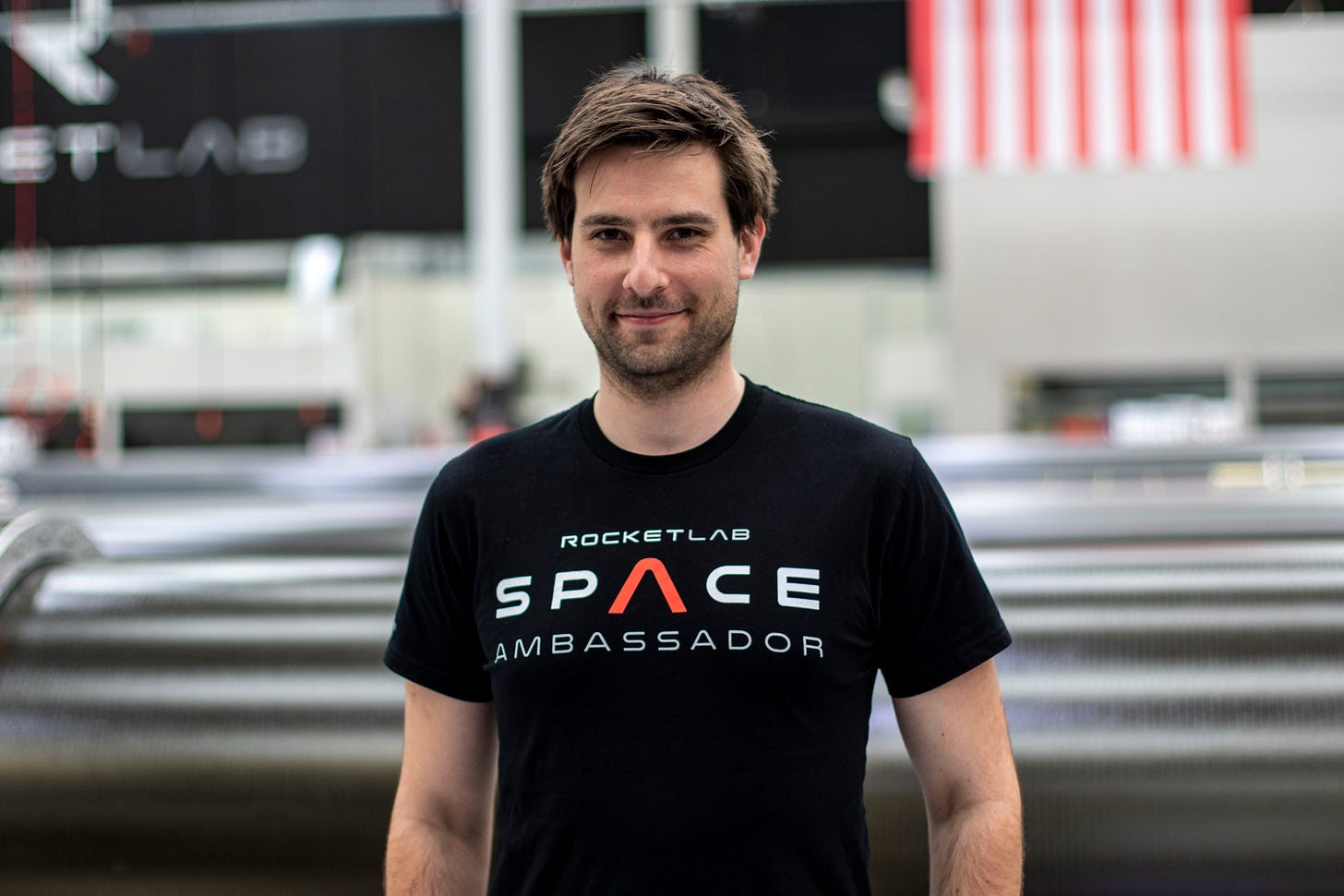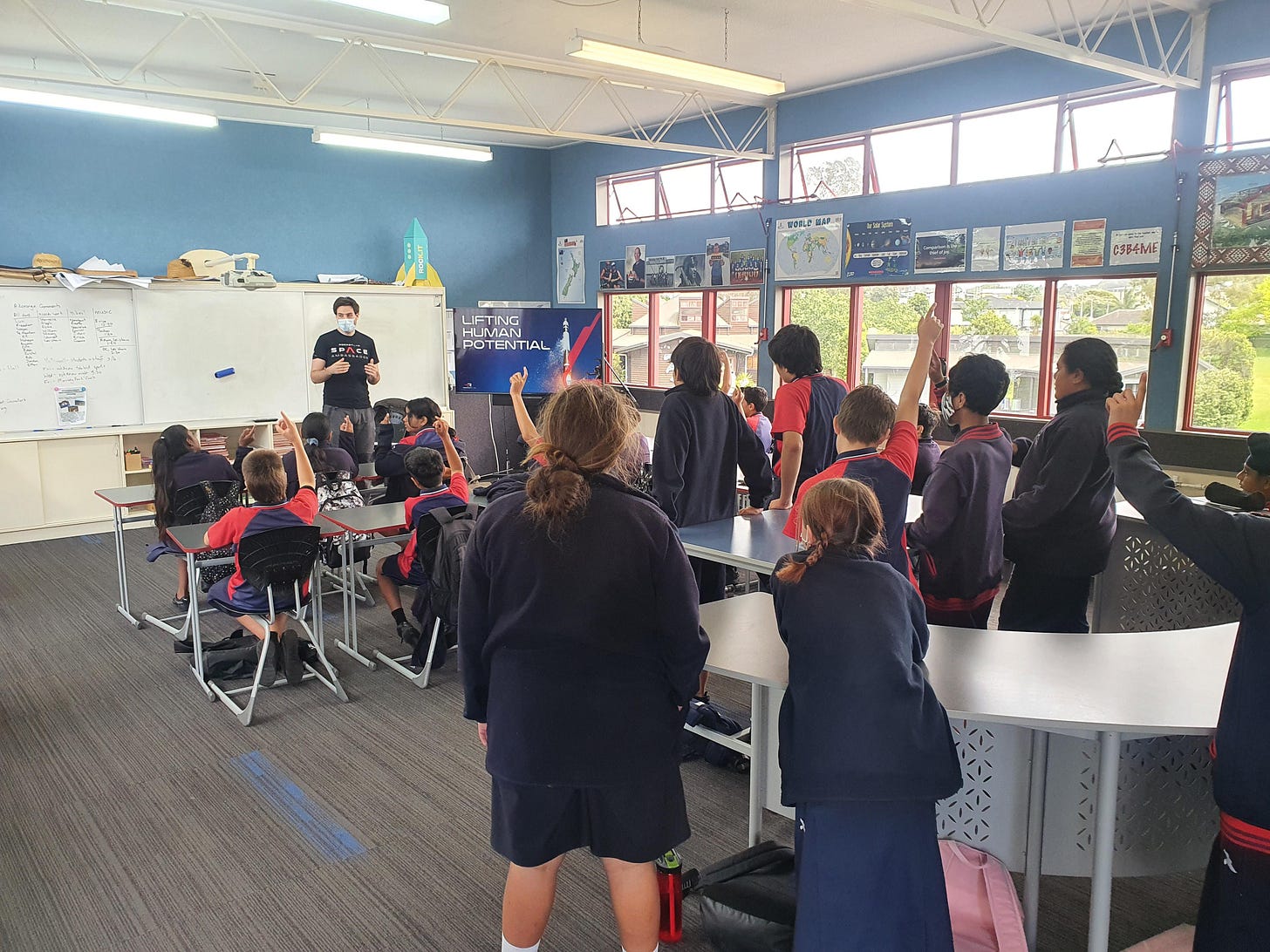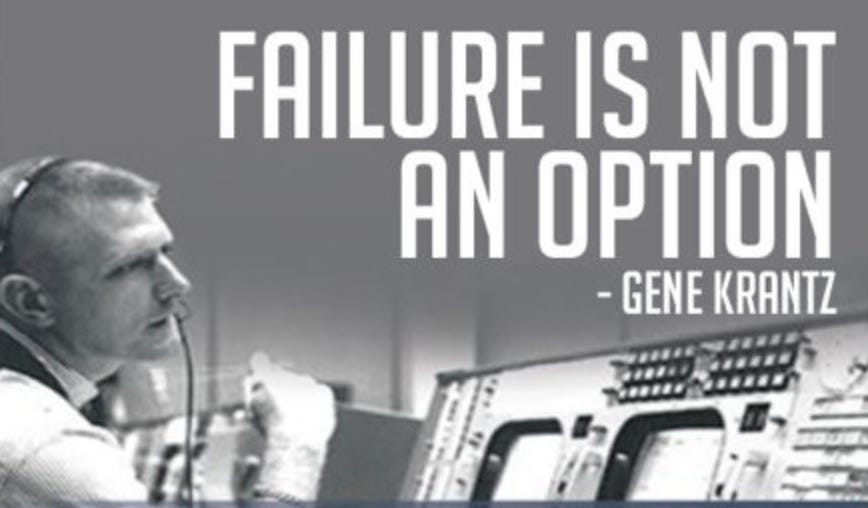Spotlight: Adrien Michaud – Rocket Lab Space Ambassador
Recently, we spoke with Adrien about the differences between old and historical space, the Apollo 13 movie (which inspired him to become an inventor) and the future of the space tech industry.
No author is an island, and we owe a considerable debt to scholars and other writers who examined the subjects that we usually cover in our newsletter before us. There would not be much for us to cover without the people who are building the industry. ‘Spotlight’ will feature a series of interviews with engineers, entrepreneurs, investors, and policymakers. This week, we spoke with a Rocket Lab engineer about his experience, career paths in space tech, and the state of the industry, as well as its future.
Rocket Lab is one of the New Space unicorns founded in 2006 in New Zealand. Rocket Lab is an end-to-end global space company delivering reliable launch services, spacecraft, satellite components, and on-orbit management. To date, Rocket Lab has had 33 successful launches and 155 satellites deployed. The company’s funding exceeds $700M.
What do you do at Rocket Lab?
I maintain a telemetry database that describes messages that are exchanged between a space system, rocket, satellite, or a launchpad. Oftentimes, people who work on one part of the rocket and know a lot about that part, don’t necessarily know how things work in another part – that’s where I tie in. There’s a short acronym for this, which is TMTC or telemetry telecommand. The database is essentially the definition of all the messages that we can send and receive from mission control to a rocket and vice versa.
For instance, if you have a temperature sensor somewhere on one of the rocket engines, then the rocket needs to read that temperature and send it over the air to an antenna in a “packet”. The packet contains a lot of parameters and when we receive the message, we need to know what those parameters are and how to communicate the parameters to different departments in a simple way.
You’ve been involved in mentoring middle school and high school students through the Space Ambassador program at Rocket Lab. Could you please tell us more about the program?
As part of the initiative, we visit schools and share with kids the importance of space technologies and what we do at Rocket Lab. The opportunity to share our experiences with them is really fulfilling and I love answering their questions. I’m very happy the initiative exists.
You spent a few years at Airbus before joining a New Space venture. What motivated you to make the transition from Old Space?
Not sure which one is more common – old space or historical space – but I prefer saying historical space because many old space companies still do really cool stuff. At Airbus, I was working on the Solar Orbiter (ESA/NASA joint mission) and was responsible for the management of the central database. The project was coming to an end, and I decided to move to New Zealand for personal reasons. Rocket Lab was pretty much the only aerospace company in the Australasian area recruiting for my specialty, so it was perfect timing.
What advice would you offer someone considering a career in space tech? Is it hard to break into the industry without an engineering degree?
A typical path to space tech might be getting relevant bachelor’s and master’s degrees, landing a couple of internships in the aviation or aerospace industries, and then finally applying for the positions that you want. This is the path that I took, and I might be a little boring in this sense. If you are an engineer, you could be doing either systems engineering or more specialized and technical jobs. It is not a prerequisite to have a background in aerospace or aviation to get a job in space tech as an engineer, however. For example, you might be working in the automobile industry on various battery technologies but know well how they can work in rockets. You’d have a pretty good chance in this case.
A friend of mine, who moved to New Zealand in about the same year that I did, had a degree in philosophy. After college, he did a few jobs as a surveyor and tech support in the healthcare industry, so nothing space-related. When he came to New Zealand, he was looking for a job at Rocket Lab and eventually got one doing vibration testing on battery assemblies. His experience is atypical because, for example, he didn’t have relevant education but some of the skills that he garnered post-graduation helped him get the job. There are also many roles in HR, legal, business development, and content creation that people can pursue to become part of the ecosystem.
So you can have very different paths that can lead to the space industry. And if we were limiting ourselves to people with very specific aerospace degrees, then we wouldn’t have many people working at Rocket Lab.
Could you tell us about the primary influences that led you to a career in space tech?
I realized that I wanted to be an inventor early on – perhaps, at the age of 10. I liked math, engineering, and solving problems. A few years later, I watched Apollo 13 and thought the engineers’ problem-solving skills were astonishing (square peg scene). Ed Harris’ line “failure is not an option” was what really got me hooked. The way his character, Gene Kranz, was portrayed, and how he approached various problems was really inspiring. I immediately thought that I wanted to be like him.
In college, I studied electrical and mechanical engineering but eventually realized that software development was my forte. I took a couple of courses in college and arrived at databases because I liked software programming and not many people wanted to do databases, so I thought it was an easy way for me to land a job in the aerospace industry.
You started a couple of businesses before joining Airbus. What did you learn from those experiences?
I was doing a bunch of different projects to learn more about software development and databases. The main project was a Snapchat-like heat map, which showed hotspots. I did hope that it could potentially become a multibillion-dollar idea but the point was to learn as much as possible about software and get the job that I wanted in the aerospace industry. The engineering degree certainly gave me an edge compared to other candidates but I don't do any mechanical or electrical engineering in my day-to-day.
It feels like we are at an inflection point with the proliferation of space tech use cases and exploding public interest. What are your thoughts on this?
We are definitely seeing a divergence between very optimistic predictions and the actual state of the industry. For example, everyone was hopeful that space tech companies would be launching 300 rockets per year by now, which is obviously not happening. Companies can create small rockets very quickly but not smallsats. There are many startups that were founded because people were really optimistic, and as a result, the companies either have to deliver the product (unlikely) or go bankrupt. In my personal opinion, space tech will either look like civil aviation or the automobile industry in the future. In other words, we might have two large corporations dominating the market (e.g., Boeing & Airbus) or dozens of different brands owned by conglomerates.

What do you think are the main challenges that space tech founders have to deal with? What factors can propel innovation in the industry?
There’s a great deal of skepticism in the market about some emerging business models and how to actually make money from space. It’s a bit paradoxical because we need space, we use space-enabled technologies every day, but no one wants to pay for them. For example, I use Google Maps frequently, but I would probably be hesitant to actually pay for it. So the company has to use other revenue streams to continue offering the product. We are told that there’s a lot of money to be made but there aren’t many well-understood revenue streams and business use cases. Startups can have the coolest ideas and the best tech but, at the end of the day, they still have to pay engineers, suppliers, etc.
I believe we need to be patient and take it one step at a time. 10-15 years ago, electric cars weren’t possible but because we have made so much progress in battery technology and, for example, material sciences, we now have dozens of electric car brands. When looking at one of our products, Electron, it was impossible to manufacture it 10-20 years ago because of technical limitations in material technology or 3D printing. There are a lot of new technologies that haven't found their actual use cases but someone will eventually have an idea of how to put the pieces of the puzzle together. It comes down to having the drive to do the digging and identify new solutions to existing problems.
Lastly, there are a lot of things that we take for granted nowadays. Electron was thought to be a total failure without a single customer at first, but the skeptics have been proven wrong too many times for me to count. We can send a satellite whenever because it’s a piece of cake, and it doesn’t really make people tick anymore. The great tragedy of the industry is that we need to turn super cool technologies into something boring and very predictable, so we’d have people flying safely to the Moon and back on vacations in 50-60 years.
What can we accomplish in our lifetime?
I really want to see the Moon become more accessible and reliable, so we can send payloads and enable permanent stays there. I’m really keen to follow the Artemis mission and am privileged to have participated in the very first mission of the program, CAPSTONE. The other thing is the space industry becoming yet another industry, so the perception wouldn’t be that only NASA geniuses can pursue a career in it. Don’t think that I’ll see the most exciting things like the colonization of other planets but maybe my grandkids will witness 30-hour flights from Earth to Mars!
Thank you Adrien for taking the time and sharing your journey with our readers!
Our team believes that the present lack of commercial use cases for space technologies is actually one of the key driving forces of innovation in the industry. The sheer number of problems that require solutions is an exciting opportunity for entrepreneurship. As Adrien points out, it all comes down to someone’s ability to connect seemingly unrelated technologies and use the first principles thinking to unleash creative possibilities here on Earth or in outer space. If you are interested in gaining access to our knowledge database, analytical center, or pipeline of startups please reach out to alexandra@spaceambition.org.












thank you for such a great interview!